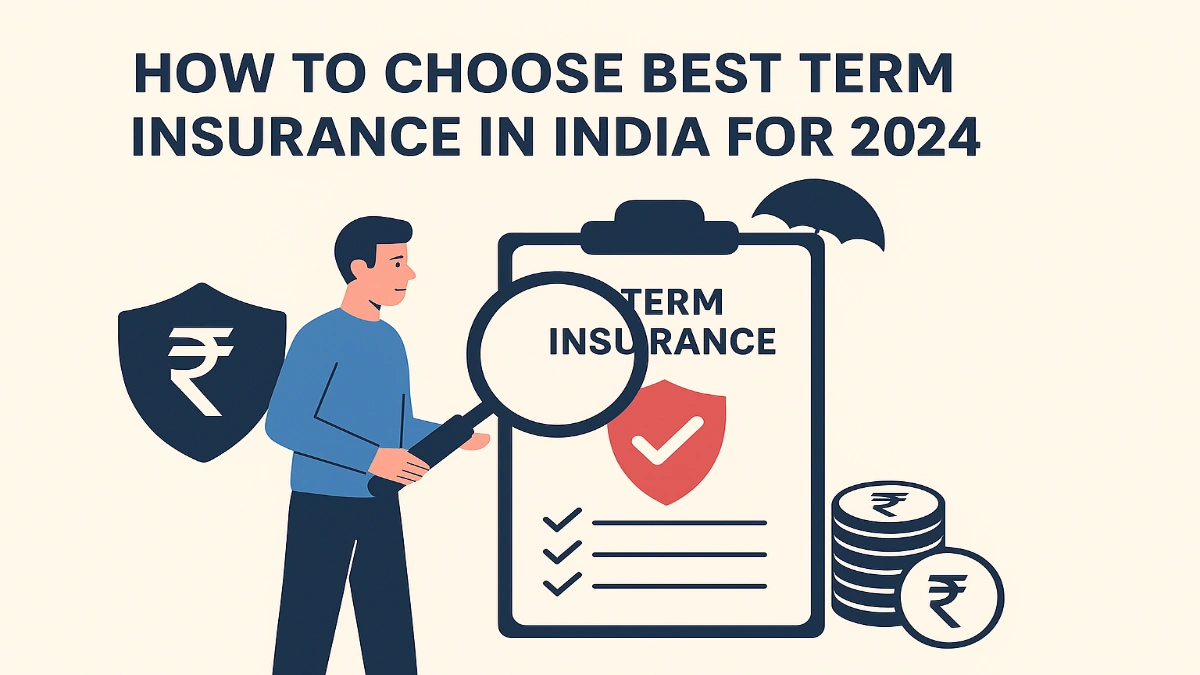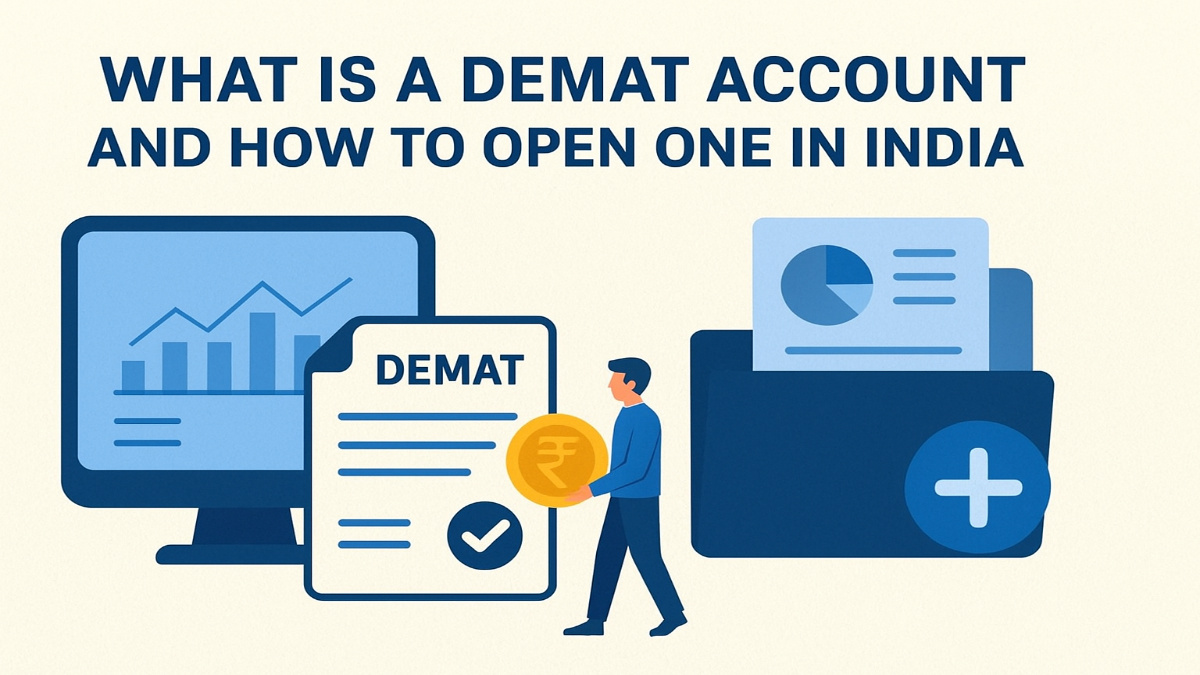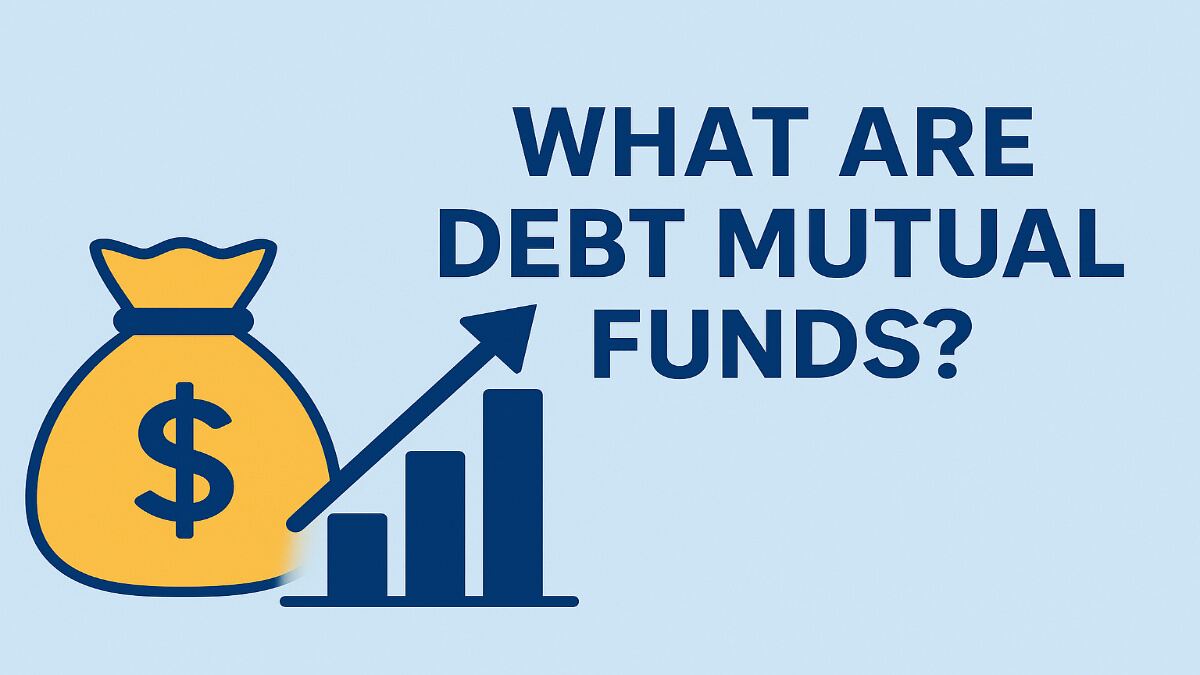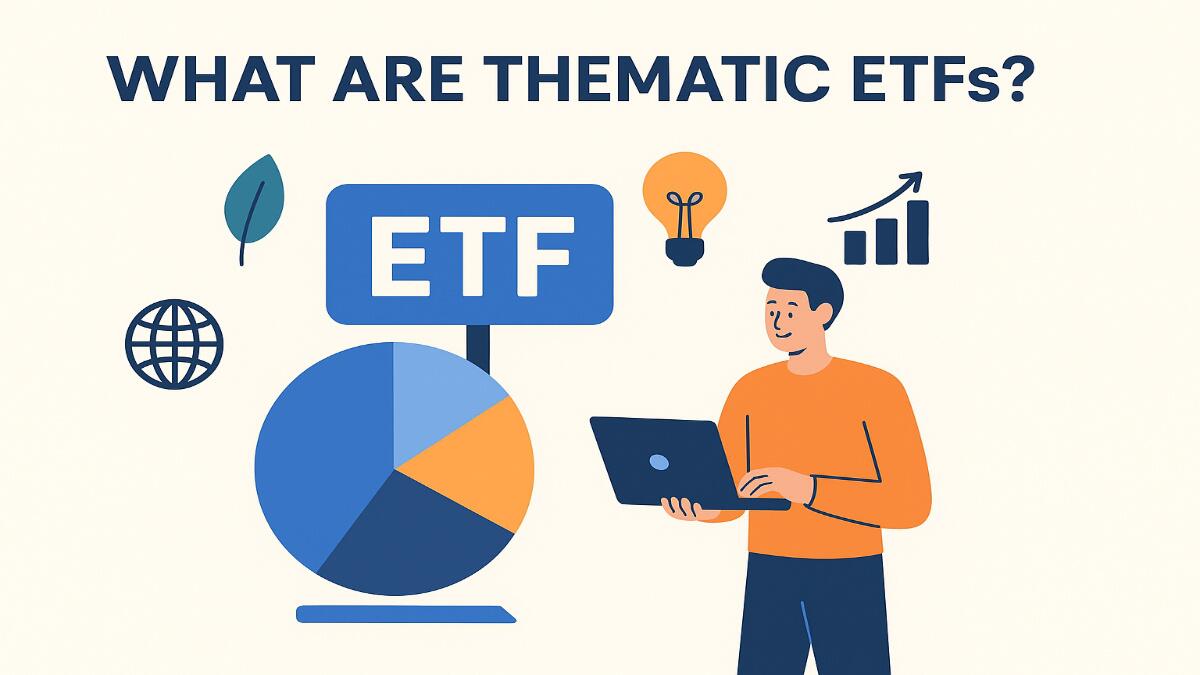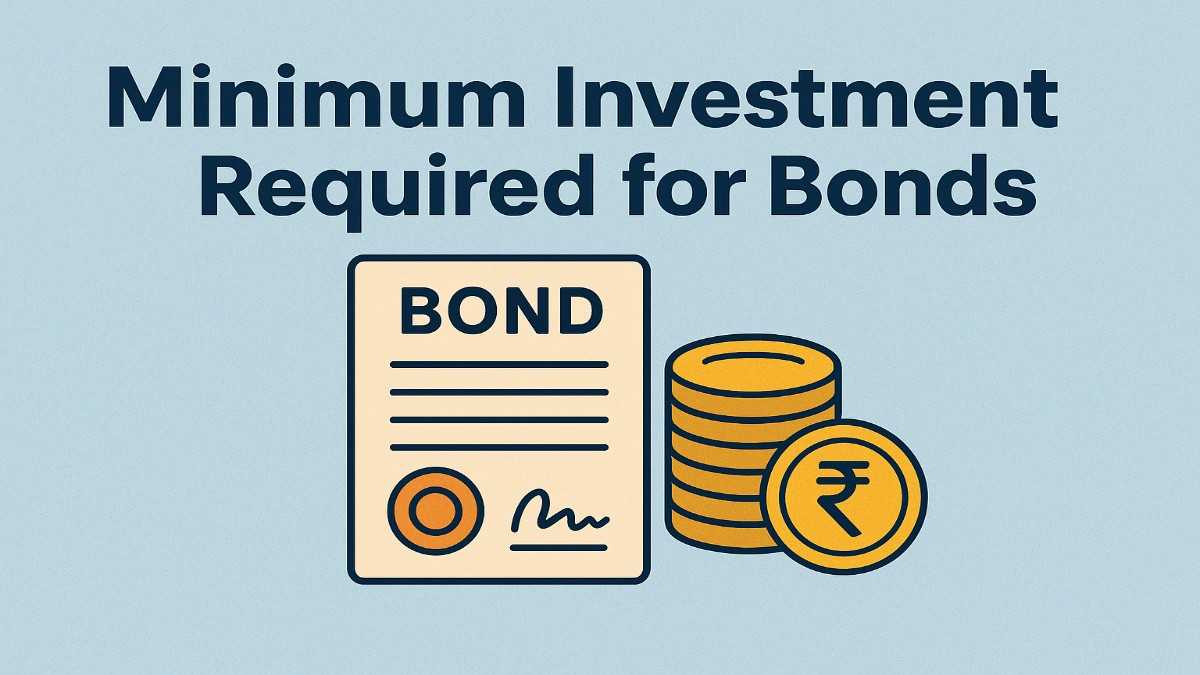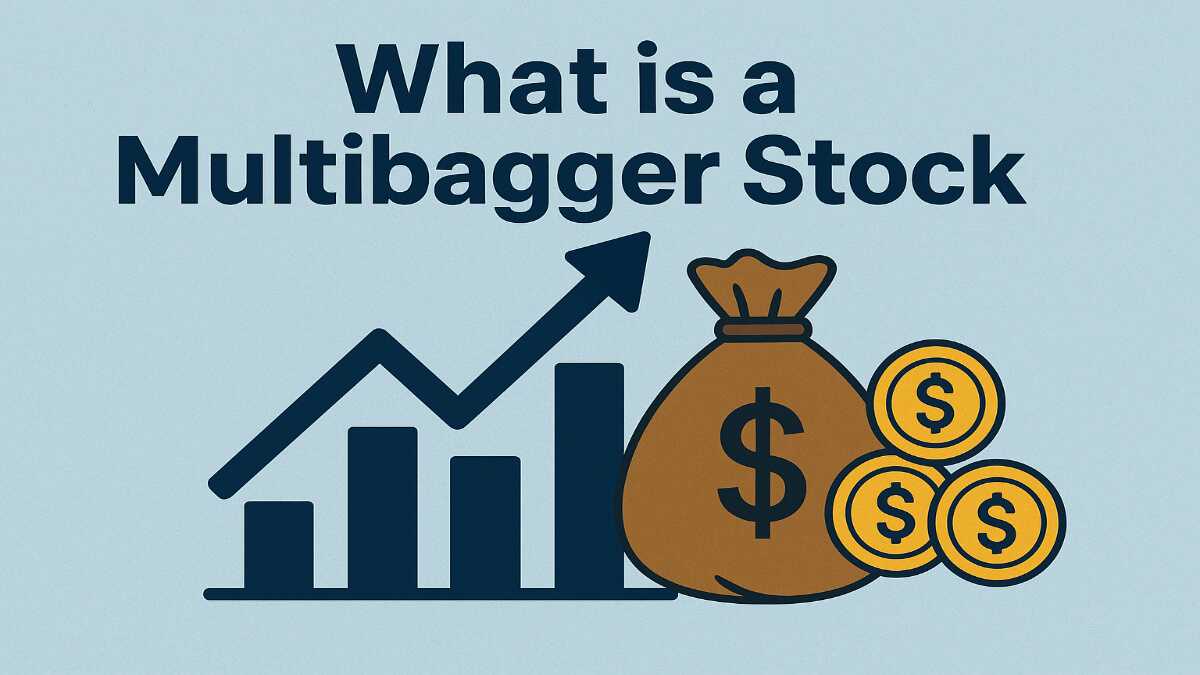Investing in the stock market can feel overwhelming, especially if you’re new to it. You might have heard about mutual funds, stocks, and bonds, but there’s another option that’s gaining popularity in India: ETFs, or Exchange-Traded Funds. If you’re wondering, “What is an ETF and how does it work?” you’re in the right place. In this detailed guide, I’ll break down everything you need to know about ETFs in simple English, with a focus on how they work in the Indian market. Whether you’re a beginner or looking to diversify your portfolio, this article will help you understand ETFs and why they might be a smart choice for you.
Table of Contents
What Is an ETF?
An ETF, or Exchange-Traded Fund, is a type of investment fund that you can buy and sell on stock exchanges, just like stocks. It’s like a basket that holds various assets, such as stocks, bonds, or commodities, and it tracks the performance of a specific index, sector, or asset class. For example, an ETF might track the Nifty 50 index, which includes the top 50 companies listed on the National Stock Exchange (NSE) in India.
What makes ETFs special is their flexibility. Unlike mutual funds, which are priced once a day, ETFs can be traded throughout the trading day at market prices. This means you can buy or sell an ETF anytime the stock market is open, giving you more control over your investments. If you’re curious about what is an ETF and how does it work, think of it as a low-cost, flexible way to invest in a diversified portfolio without needing to pick individual stocks.
How Does an ETF Work?
To understand what is an ETF and how does it work, let’s dive into the mechanics. ETFs are designed to mimic the performance of an underlying index or asset. For example, a Nifty 50 ETF will hold shares of the same companies in the Nifty 50 index, in the same proportion. When the index goes up or down, the ETF’s value moves accordingly.
Here’s a step-by-step look at how ETFs work:
- Creation of the ETF: A fund manager or asset management company (AMC) creates the ETF. They decide which index or asset the ETF will track, such as the Sensex, gold, or a sector like technology.
- Pooling Assets: The ETF holds a collection of securities (stocks, bonds, etc.) that match the chosen index. For instance, a gold ETF might hold physical gold or gold-related investments.
- Listing on Stock Exchanges: Once created, the ETF is listed on a stock exchange like the NSE or BSE. Investors can buy or sell ETF shares through a demat account, just like they would trade stocks.
- Trading During Market Hours: Unlike mutual funds, which are bought or sold at the end of the day’s net asset value (NAV), ETFs are traded throughout the day. Their prices fluctuate based on supply and demand.
- Tracking the Index: The ETF’s goal is to replicate the performance of its underlying index. If the Nifty 50 rises by 2%, the Nifty 50 ETF should also rise by a similar percentage, minus any fees.
By understanding what is an ETF and how does it work, you can see why it’s a popular choice for investors who want diversification without the hassle of managing individual stocks.
Types of ETFs Available in India
In India, ETFs come in various types, each catering to different investment goals. Knowing what is an ETF and how does it work also involves understanding the different options available. Here are the main types of ETFs you can invest in:
1. Equity ETFs
These ETFs track stock market indices like the Nifty 50, Sensex, or Nifty Bank. They’re ideal for investors who want exposure to the stock market without picking individual stocks. For example, the SBI Nifty 50 ETF tracks the Nifty 50 index.
2. Gold ETFs
Gold ETFs allow you to invest in gold without buying physical gold. They track the price of gold and are backed by physical gold held by the fund. This is a great option for Indians who see gold as a safe investment.
3. Debt ETFs
Debt ETFs invest in fixed-income securities like government bonds or corporate bonds. They’re less risky than equity ETFs and suit conservative investors looking for stable returns.
4. Sectoral ETFs
These ETFs focus on specific sectors, such as banking, IT, or healthcare. For example, a Nifty IT ETF would invest in top IT companies like Infosys and TCS.
5. International ETFs
International ETFs give Indian investors exposure to global markets, such as the US or Europe. For instance, the Motilal Oswal Nasdaq 100 ETF tracks the top 100 companies listed on the Nasdaq.
Understanding what is an ETF and how does it work across these types can help you choose the right one based on your financial goals and risk appetite.
Benefits of Investing in ETFs
Now that you know what is an ETF and how does it work, let’s explore why ETFs are a great investment option for Indian investors:
1. Low Costs
ETFs generally have lower expense ratios than mutual funds. The expense ratio is the annual fee charged by the fund house. For example, while mutual funds may charge 1-2%, ETFs often charge as low as 0.1-0.5%.
2. Diversification
When you invest in an ETF, you’re buying a slice of many assets. This reduces the risk compared to investing in a single stock. For instance, a Nifty 50 ETF gives you exposure to 50 top companies.
3. Flexibility
Since ETFs are traded on stock exchanges, you can buy or sell them anytime during market hours. This makes them more flexible than mutual funds, which are priced only at the end of the day.
4. Transparency
ETFs disclose their holdings daily, so you always know what you’re investing in. This transparency builds trust and helps you make informed decisions.
5. Tax Efficiency
ETFs are generally more tax-efficient than mutual funds because they have lower capital gains distributions. In India, long-term capital gains (LTCG) on equity ETFs are taxed at 10% (above ₹1 lakh), while short-term capital gains (STCG) are taxed at 15%.
By grasping what is an ETF and how does it work, you can see why these benefits make ETFs an attractive option for both new and seasoned investors.
Risks of Investing in ETFs
While ETFs have many advantages, it’s important to understand the risks. Knowing what is an ETF and how does it work also means being aware of potential downsides:
1. Market Risk
Since ETFs track indices or assets, their value depends on the performance of the underlying index. If the market falls, so will the ETF’s value.
2. Tracking Error
Sometimes, an ETF may not perfectly match the performance of its index due to fees or other factors. This is called a tracking error.
3. Liquidity Risk
Some ETFs, especially those tracking niche sectors, may have low trading volumes, making it harder to buy or sell them at your desired price.
4. Currency Risk (for International ETFs)
If you invest in international ETFs, fluctuations in currency exchange rates can affect your returns. For example, a stronger rupee could reduce gains from a US-based ETF.
By understanding what is an ETF and how does it work, you can weigh these risks against the benefits and decide if ETFs fit your investment strategy.
How to Invest in ETFs in India
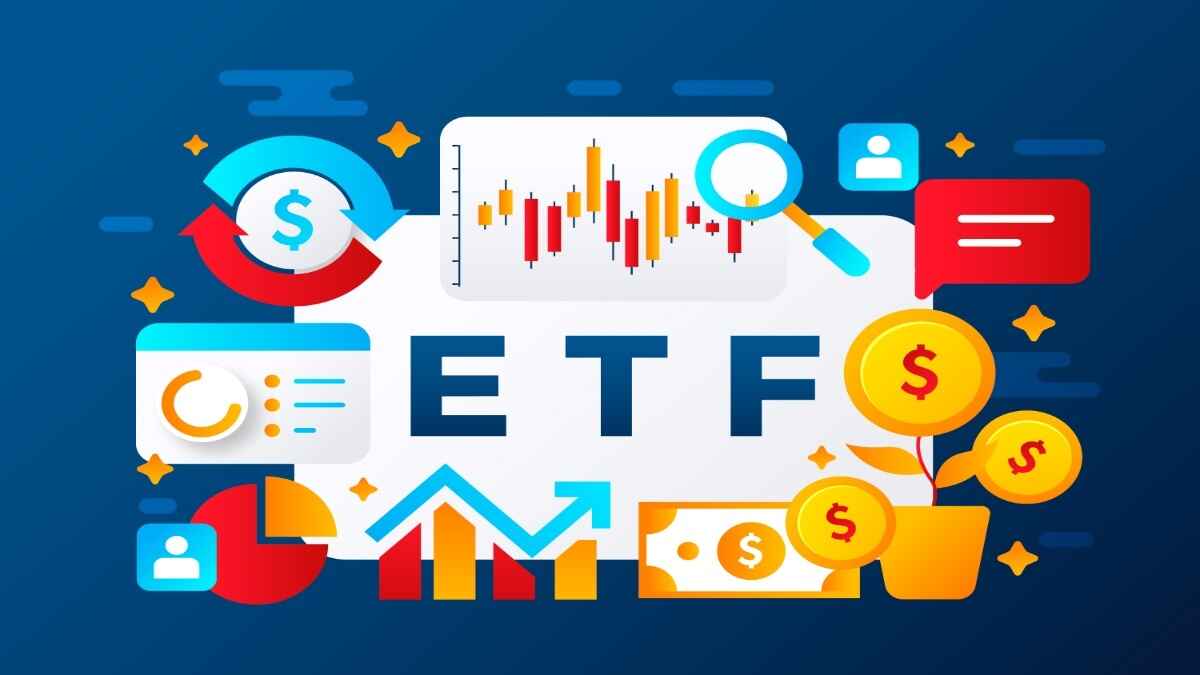
Ready to start investing in ETFs? Here’s a simple guide to help you understand what is an ETF and how does it work when it comes to getting started:
- Open a Demat Account: You need a demat and trading account to buy ETFs, as they’re traded on stock exchanges like the NSE or BSE. You can open an account with brokers like Zerodha, Upstox, or Groww.
- Choose the Right ETF: Research ETFs based on your goals. For example, if you want safe returns, consider a debt ETF. If you’re bullish on tech, a sectoral ETF might be better.
- Place an Order: Log in to your trading account, search for the ETF (e.g., NIPPON INDIA ETF NIFTY BEES), and place a buy order. You can choose a market order (buy at the current price) or a limit order (set your price).
- Monitor Your Investment: Keep an eye on your ETF’s performance and the market. You can sell your ETF shares anytime during market hours.
- Consider SIPs: Some platforms allow you to invest in ETFs through Systematic Investment Plans (SIPs), letting you invest a fixed amount regularly.
Understanding what is an ETF and how does it work makes it easier to take these steps with confidence.
ETFs vs. Mutual Funds: What’s the Difference?
A common question when learning what is an ETF and how does it work is how ETFs compare to mutual funds. Here’s a quick comparison:
- Cost: ETFs generally have lower expense ratios than mutual funds.
- Trading: ETFs can be traded throughout the day, while mutual funds are priced at the end of the day.
- Management: Most ETFs are passively managed (tracking an index), while many mutual funds are actively managed, aiming to beat the market.
- Minimum Investment: ETFs can be bought for the price of one share, while mutual funds may require a minimum investment amount.
By understanding what is an ETF and how does it work compared to mutual funds, you can decide which is better for your portfolio.
Popular ETFs in India
To give you a sense of what is an ETF and how does it work in the Indian market, here are some popular ETFs:
- Nippon India ETF Nifty BeES: Tracks the Nifty 50 index.
- SBI ETF Gold: Tracks the price of gold.
- HDFC Sensex ETF: Tracks the BSE Sensex index.
- Motilal Oswal Nasdaq 100 ETF: Tracks the Nasdaq 100 index for US exposure.
- ICICI Prudential Nifty Bank ETF: Focuses on banking sector stocks.
These ETFs offer a range of options for investors looking to diversify their portfolios.
Why ETFs Are Gaining Popularity in India
In recent years, ETFs have become more popular in India, and understanding what is an ETF and how does it work explains why. The rise of digital platforms like Zerodha and Groww has made investing in ETFs easier. Plus, the low costs and flexibility appeal to young investors. The Indian government’s push for financial inclusion and schemes like the CPSE ETF (tracking public sector enterprises) have also boosted interest.
Moreover, ETFs align with the growing trend of passive investing, where investors prefer to track the market rather than try to beat it. As more Indians learn what is an ETF and how does it work, the demand for these funds is likely to grow.
Tips for Investing in ETFs in India
To make the most of ETFs, keep these tips in mind:
- Match Your Goals: Choose an ETF that aligns with your financial goals, whether it’s wealth creation, stability, or diversification.
- Check Expense Ratios: Lower fees mean higher returns over time, so compare expense ratios before investing.
- Diversify: Don’t put all your money in one ETF. Spread your investments across equity, debt, and gold ETFs.
- Stay Informed: Keep track of market trends and the performance of the index your ETF tracks.
- Consult a Financial Advisor: If you’re unsure, talk to a professional to understand what is an ETF and how does it work for your specific needs.
Common Misconceptions About ETFs
When learning what is an ETF and how does it work, it’s easy to come across myths. Let’s clear up a few:
- Myth: ETFs are only for experts.
Truth: ETFs are beginner-friendly because they’re simple and diversified. - Myth: ETFs are risk-free.
Truth: ETFs carry market risks, just like any investment. - Myth: ETFs are the same as stocks.
Truth: While traded like stocks, ETFs are baskets of assets, offering more diversification.
Understanding what is an ETF and how does it work helps you separate fact from fiction.
The Future of ETFs in India
As more Indians learn what is an ETF and how does it work, the ETF market is expected to grow. With new ETFs being launched in sectors like renewable energy, healthcare, and technology, investors have more choices than ever. The rise of robo-advisors and investment apps is also making ETFs more accessible to young investors.
Additionally, regulatory changes by SEBI (Securities and Exchange Board of India) are making ETFs more transparent and investor-friendly. As financial literacy improves, more people will likely turn to ETFs for their simplicity and affordability.
FAQs
What is an ETF and how does it work in simple terms?
An ETF, or Exchange-Traded Fund, is an investment fund traded on stock exchanges like stocks. It holds a basket of assets (stocks, bonds, or commodities) and tracks an index, such as the Nifty 50. You can buy or sell ETF shares through a demat account during market hours.
Are ETFs safe to invest in?
ETFs carry market risks, as their value depends on the underlying index or asset. While they’re diversified, they’re not risk-free. Choose ETFs based on your risk tolerance and financial goals.
How are ETFs different from mutual funds?
ETFs are traded on stock exchanges throughout the day, have lower fees, and are usually passively managed. Mutual funds are priced once a day, often have higher fees, and may be actively managed.
Can I invest in ETFs through SIPs?
Yes, some platforms allow you to invest in ETFs via Systematic Investment Plans (SIPs), letting you invest a fixed amount regularly.
What are the tax implications of ETFs in India?
Equity ETFs are taxed at 15% for short-term capital gains (less than a year) and 10% for long-term gains (above ₹1 lakh). Debt and gold ETFs have different tax rules, so consult a tax advisor.
Do I need a demat account to invest in ETFs?
Yes, you need a demat and trading account to buy and sell ETFs on stock exchanges like the NSE or BSE.
Which is the best ETF to invest in India?
The best ETF depends on your goals. Popular options include Nippon India ETF Nifty BeES, SBI ETF Gold, and Motilal Oswal Nasdaq 100 ETF. Research and choose based on your risk appetite.
Can ETFs be used for long-term investment?
Yes, ETFs are great for long-term investing due to their low costs and diversification. Equity ETFs, for example, can help build wealth over time.
By now, you should have a clear idea of what is an ETF and how does it work. ETFs offer a simple, cost-effective way to invest in the Indian market, whether you’re aiming for growth, stability, or diversification. Start small, do your research, and consider consulting a financial advisor to make the most of your ETF investments.
Disclaimer: Moneyjack.in provides general financial information for educational purposes only. We are not financial advisors. Content is not personalized advice. Consult a qualified professional before making financial decisions. We are not liable for any losses or damages arising from the use of our content. Always conduct your own research.



